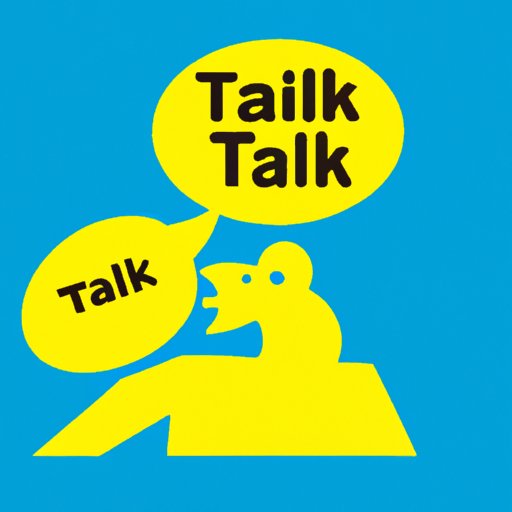I. Introduction
Self-talk is a phenomenon that everyone experiences but not everyone fully understands. It’s a common occurrence that happens when we talk to ourselves either out loud or in our heads. Many people view it as a sign of insanity or lack of social skills, but it’s actually quite the opposite. In this article, we will explore the psychology behind self-talk and its benefits, as well as provide solutions for those who may struggle with self-talk in their daily lives.
II. The Psychology Behind Self-Talk: Why Do We Do It?
Self-talk is more than just a way to relieve boredom; it serves important psychological functions. Inner speech, the biological process from which self-talk arises, develops in early childhood and continues throughout our lives. It enables us to make sense of the world, regulate our emotions, and solve problems.
Research shows that self-talk has numerous psychological benefits, including regulating emotions, self-soothing, and decision-making. It helps us cope with stress and anxiety and can improve our overall well-being.
III. The Different Kinds of Self-Talk and What They Reveal About Us
There are various kinds of self-talk, each with its own purpose and impact on our behavior and mental health. Positive self-talk, for example, can help us build self-confidence and motivation, while negative self-talk can lead to depression, anxiety, and other mental health issues. Instructional self-talk, on the other hand, can improve our performance and help us achieve our goals.
What we say to ourselves matters, and our self-talk reflects our thoughts, beliefs, and attitudes. By understanding the different types of self-talk, we can gain insights into our own thought processes and make changes to improve our overall well-being.
IV. Exploring the Cultural and Personal Reasons for Self-Talk
Self-talk is not just a psychological phenomenon; it is also a social and cultural one. Different cultures have varying attitudes towards self-talk, and it can serve different functions in personal contexts. For example, in some cultures, self-talk is seen as a way to cope with stress and emotional turmoil, while in others, it’s viewed as a sign of mental instability.
Personal reasons for self-talk also vary. Some people use it to calm their nerves before a big event, while others use it to motivate themselves to achieve a goal. For many, self-talk is a way to connect with themselves and make sense of their inner experiences.
V. The Connection Between Self-Talk and Motivation
Self-talk and motivation are closely linked. When we use positive self-talk, it can boost our motivation levels and help us achieve our goals. On the other hand, negative self-talk can be demotivating and hinder our progress. By understanding the connection between self-talk and motivation, we can use self-talk as a tool to improve our overall well-being.
There are many strategies and tips for using self-talk to improve motivation, such as using affirmations, setting realistic goals, and focusing on the process rather than the outcome. By incorporating self-talk into our daily routines, we can reap the benefits and achieve greater success in all areas of our lives.
VI. Breaking Down the Stigma of Self-Talk: Benefits and Importance
Despite the numerous benefits of self-talk, there is still a stigma attached to it. Many people view self-talk as a sign of weakness or mental instability. However, this is far from the truth.
Self-talk can improve our self-awareness, enhance our communication skills, and help us make better decisions. By embracing self-talk as a helpful tool, we can improve our overall well-being and lead more fulfilling lives.
VII. Conclusion
In conclusion, self-talk is not a sign of insanity or lack of social skills. It is a natural and common occurrence that serves important psychological functions. By understanding the psychology behind self-talk, we can reap its benefits and improve our overall well-being. If you struggle with self-talk, try incorporating some of the strategies and tips discussed in this article to see how it can positively impact your life.
